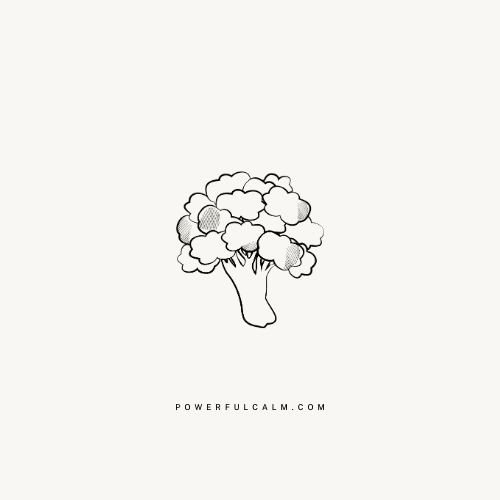Inner strength is one of the most powerful traits to cultivate self-acceptance.
The science and philosophy that support self-acceptance as a way to be effective in your life and align with your intentions and goals is strong.
Self-acceptance is embracing all of your attributes, positive or negative, exactly as they are. Sometimes, you may struggle to accept particular qualities you have. Maybe you were criticized as a child, or you’re locked in the comparison trap rampant in popular culture or on social media; it is not easy to be compassionate with yourself. But accepting who you are is vital for your happiness and overall well-being. Self-acceptance is a fundamental part of psychological health and well-being. Keep reading for a more in-depth explanation and ideas on cultivating self-acceptance.
Self-Acceptance for Mental Health
Low self-acceptance leads to suffering. When you don’t fully accept yourself, you’re at a higher risk of experiencing anxiety and depression. Specifically, when you reject negative qualities about yourself, it can lead to rumination about the negative attributes. When you are in a situation and the negative parts of yourself show up, the result is often negative self-talk. Some examples of negative self-talk include statements such as:
- I’m not good enough.
- I’m a failure.
- I’ll never get things right.
Negative statements we tell ourselves often become feelings of hopelessness, worthlessness, sadness, and anxiety. However, when you accept yourself, especially the parts of yourself that you’re not proud of, you increase your control over your emotions. In other words, self-acceptance can prevent anxiety and any other emotion that’s difficult to accept.
Self-acceptance for Happiness and Well-Being
Like mental health, cultivating self-acceptance is a key to happiness and well-being. You can manage negative self-talk more effectively when you have more control over your thought patterns and feelings. High levels of self-acceptance boost your self-esteem, allowing you to be more confident about yourself and giving you the power to handle criticism better.
Self-Acceptance as a Means for Change
Maybe up to this point, you have the impression that self-acceptance means becoming stagnant or complacent. It’s easy to think about, mainly because the philosophy and science of self-acceptance encourage you to embrace every part of yourself. But self-acceptance doesn’t mean that you stop learning about yourself and growing. Self-acceptance gives you the freedom to recognize and acknowledge your weaknesses so you become aware of the things you want to change in your life.
Personal growth is spotlighted through the lens of self-acceptance. You cannot grow and improve your relationship with yourself without knowing who you are. The benefit is that cultivating self-acceptance opens you up so you can practice self-compassion and self-love and transform into your most authentic self.
How to Practice Self-Acceptance
The science and philosophy behind self-acceptance make a lot of sense, but how do you start a practice in your daily life?
Here are a few techniques to get you started –
Remind yourself that you’re learning and growing.
Remember the last time you learned a new skill? When I started gardening, it looked so easy on the shows I watched. I wanted the yard in my new house to look just like the pictures in all the magazines. But I got a bit overwhelmed by learning about soil conditions light requirements, some plants don’t flower the first year, and it went on and on. My garden that year didn’t look anything like the picture. My neighbor had been gardening for over ten years, and her garden was beautiful!
Making mistakes opens the door for negative self-talk to peek around the corner, ready to break into your mind. I could have told myself, “I’m a terrible gardener,” or “Gardening just isn’t for me.” But you can go in a different direction and tell yourself you’re learning and developing new skills. When you find yourself in a situation where you are not naturally skilled in compassionate self-talk like, “I will get better at this,” or “It’s okay, I’m learning and next time will be better.” Allowing yourself to accept that you’re learning and making mistakes is part of the process that can release the expectation of perfection and empower you to try again.
Keep a gratitude journal.
When you focus on things that went wrong during the day or dwell on things you don’t like about yourself, it’s helpful to stop, breathe and shift your focus. Developing a habit that signals you to think about ways to shift your focus to a more positive mindset helps you cultivate self-acceptance. One way to accomplish this is by keeping a journal (or a notes app on your phone) to write down a few things you are grateful to have in your life every day. Focusing on the positive will reduce negative feelings, boosting your ability to accept yourself more mindfully.
View your experiences from a different perspective.
If you keep circling back, thinking repeatedly about a situation, does it feel uncomfortable? Try looking at the situation from a different point of view. Is there anything that could be a silver lining? Sometimes, you can get stuck in your feelings, and it’s like you keep experiencing them all over again. It’s often helpful to ask what or how Aunt Jane would think about this. Looking at situations with fresh eyes, you’ll find things you didn’t notice before that may help you accept the experience.
Conclusion
Cultivating self-acceptance is not a practice we can master daily, which is totally okay. The important thing is to recognize the concept and find ways to incorporate self-acceptance into your life to support your mental well-being better so you experience more happiness.



